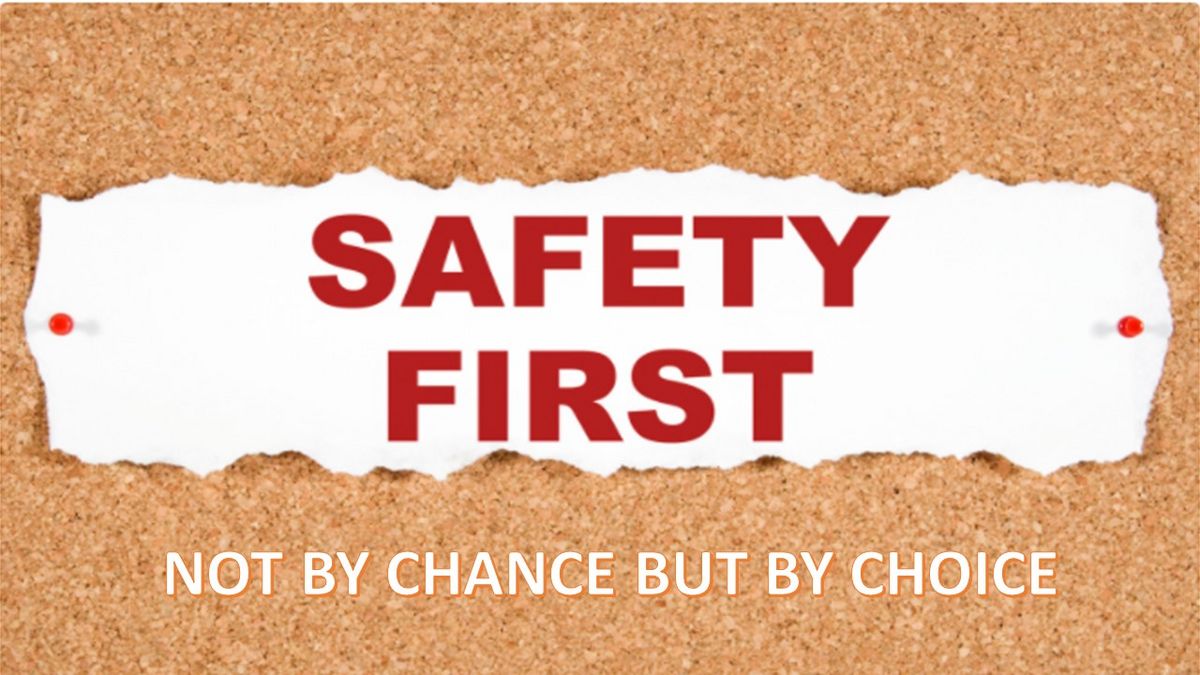Safety isn’t just good for business – it is critical to keep machinery & equipment safe, and also workers safe, healthy, and happy. It is therefore important for organisations to be aware of their safety challenges and how to prepare to combat them. It is not just technical knowledge that organisations need to acquire regarding safety, but also need to look at the behavior of their workers towards adopting safety practices. The focus, therefore, should be for implementing a holistic approach towards safety and building a safety culture rather than just limiting to technical safety aspects only.
Success factors for inculcating holistic safety include management commitment to safety, worker involvement, effective processes for identifying hazards & controlling risks, upkeep of machinery & equipment, and integration of a safety culture into organisation’s business processes. Being proactive is the key.
Machinery requirements have changed significantly over the past number of years with the increasing use of automation and robotic systems, resulting in the need for intelligent machinery safety strategies. The additional requirements of legislation have also played their part in the use, maintenance, and operation of machinery. With machinery being designed, modified and upgraded to meet these requirements, it is necessary for companies to ensure that their relevant personnel have the knowledge required to make informed decisions on machinery safety. In certain cases, a safety certification may be required for the personnel responsible for operating the machines. Knowledge of topics such as Safety Legislations, Machinery Standards and Regulations, Risk Assessment, Safety Systems, Electrical Safety and Functional Safety - Safety Control, Pneumatic and Hydraulic Systems is essential for the personnel. In short, a 360° approach to Machinery Safety is essential.
In addition to machinery safety requirements, it is important to develop a clear understanding of general workplace issues and how they can be applied in different functions of the organization. The effort should be to look at the real, everyday safety risks that employees encounter and how to manage them by creating a safe and healthy workplace and preventing work related injury or ill-health. The risks include those on physical and psychological health, musculoskeletal health, and those due to chemical and biological agents.
The third important aspect related to implementing safety is to know why people behave the way they do towards not seriously implementing safety at their place of work, despite the organization’s intent to do so. Organisations may adopt different approaches to managing behavior- Employee driven (Bottom up approach), Management driven (Top down approach) or a Collective approach (Holistic approach) to be successful in their attempt to establish a strong safety culture where employees behavior is oriented towards strict adherence and adoption of safety practices in all activities performed by them.
TUV India’s special training courses like CMSE, NEBOSH and BBS can help organisations in establishing, implementing, sustaining and improving Safety.
CMSE – Certified Machinery Safety Expert training provides participants the competence for the safeguarding of machines and plants. Comprehensive knowledge of the lifecycle, from risk assessment to the creation of safety concepts, and application of functional safety principles, leading to the concrete implementation of safety compliance strategies. The course covers Risk assessment according to international standard ISO 12100 and detailed review of ISO 13849 standard requirements best practices.
NEBOSH International General Certificate in Occupational Health and Safety (IGC), offered by TUV India is one of the leading health and safety qualifications around the world. It helps develop the participant’s understanding of general workplace issues and how they can be applied in different sectors around the world. It allows them to develop the essential risk management skills to create a safe and healthy workplace.
TUV India’s BBS (Behavior Based Safety) training provides insight regarding the essentials of BBS and core elements of human behavior and the reasons behind such behaviour. It guides participants for selecting the right approach towards modifying and aligning employees’ behavior so that a safety culture is established in the organization.
Summarising the above, it is right to say that Safety is a ‘value’ that cannot be compromised. A holistic approach towards safety is the best alternative and the most important choice that is available to an organization for incorporating within its strategy for growth.
About The Author

TUV India Pvt Ltd
TUV NORD GROUP
trainingindia@tuv-nord.com
